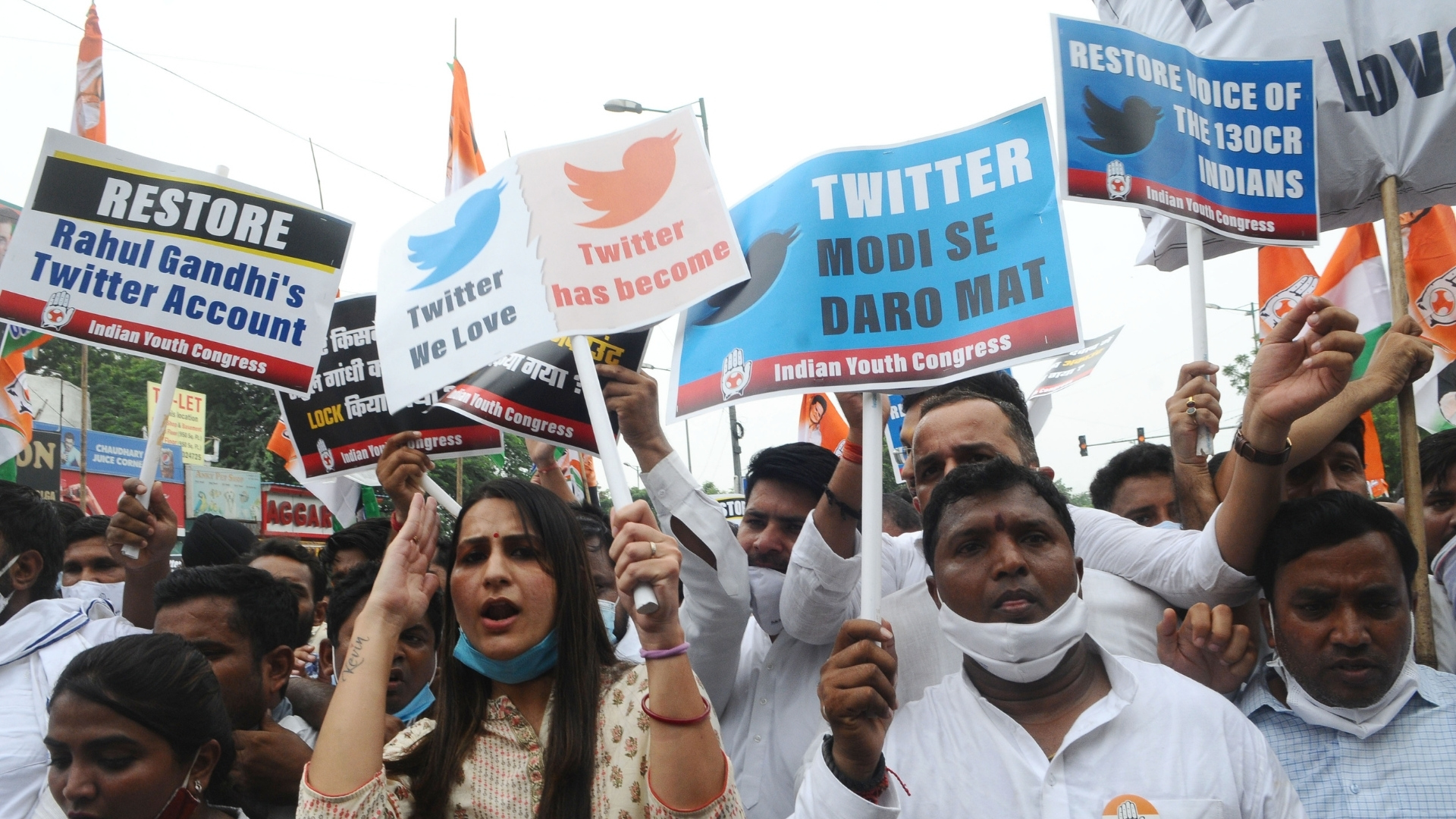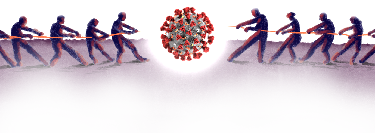Outside the US, Elon Musk’s vision of a rules-free Twitter is expected to unlock violence and civil strife
Musk’s free speech absolutism could stoke conflict in countries like India and Ethiopia

IMTIYAZ KHAN/ANADOLU AGENCY VIA GETTY IMAGES
BY ELLERY BIDDLE
22 APRIL, 2022
While protest movements have risen and fallen, and political parties spend untold resources promoting their agendas, Twitter has long struggled to remove or at least contain hate speech, incitement to violence and trolling operations on its platform.
What would happen in countries vulnerable to social unrest and communal violence if the company threw its content rules out the window and embraced an absolute commitment to free speech?
Elon Musk wants to find out. In his recent bid to buy the company, the Tesla and SpaceX CEO wrote of his belief in Twitter’s “potential to be the platform for free speech around the globe.” Musk pledged to “unlock” that potential, implying that he would ditch the company’s content rules and simply let the tweets flow.
In case you missed it: Musk bought 9% of shares in the company in mid-March, a figure that only became public last week, prompting Twitter’s leadership to offer him a seat on its board of directors. Musk entertained the offer, but then had a second thought: Why not just buy the whole company? The board opted to deploy a so-called “poison pill” strategy, effectively preventing a Musk takeover.
But there was still time to wonder what might happen if the world’s wealthiest person got his way. Academic experts cautioned that an absolute free speech policy would turn the platform into a cesspool of hate speech, spam, and porn. Veteran tech critics pointed out that Musk’s ideas about content moderation were popular in the earlier days of the internet, and that time has proven that they really don’t work at scale. Across the political spectrum in the U.S., pundits speculated on whether this would pave the way for Donald Trump to return to the platform.
What would it mean for the majority of Twitter users, who live outside the U.S.?
“That just doesn’t work in a country like India,” said Nikhil Pahwa, a tech expert and founder of Medianama, an India-focused tech policy publication based in New Delhi. India is Twitter’s third-largest market after the U.S. and Japan.
“We have real world consequences from the kind of speech that Twitter enables. Our political parties are really, really adept at understanding how the algorithms work, how to create trends, how to make something shareable,” Pahwa said. “What they excel at is essentially fueling hate.”
In recent years, India’s ruling Bharatiya Janata Party and other hardline Hindu nationalist groups have made Twitter, alongside Facebook and WhatsApp, an essential platform for promoting their agendas, sometimes inciting violence against religious minorities, Muslims in particular.

Authoritarians muddy the conversation. We clarify it with journalism.
CODA NEWSLETTERS Disinformation Matters Authoritarian Tech The Infodemic Oligarchy Coda Weekly Updates from Coda Story
“I think we’re in a situation where we need more moderation of hateful content and not less. I don’t think Musk understands or cares for whether people are getting polarized or killed in India,” Pahwa told me.
While more than 20 million Indians use Twitter on a regular basis, others have left or avoided the platform for exactly these reasons. A female researcher I spoke with, who studies gender-based harassment online, declined to be quoted for this story, citing concern that she would be attacked as a result.
Twitter’s policies prohibit hate speech, harassment, and incitement to violence, but it has a poor track record of enforcing these rules, especially for posts that are not in English.
“Everyone thinks they know how to do content moderation until it becomes their job,” said Mishi Choudhary, who directs the Software Freedom Law Center, a tech policy group in New Delhi.
“I am not sure how [Musk] plans to address censorship by proxy that countries like India demand,” she wrote in a message.
The Modi government is known for pressuring the company to remove certain posts and reinstate others. In 2021, officials updated India’s IT Rules and began requiring large foreign tech platforms to create locally-staffed grievance programs for content removal and related disputes. It took several months, and a police visit to Twitter’s local offices, before the company complied.
Twitter has faced similar kinds of pressure in sub-Saharan Africa, where it plays a significant role in national politics in the region’s largest markets, Nigeria and Ethiopia.
In Nigeria, Twitter in 2020 became the digital ground zero for #EndSARS, a social movement protesting police brutality that played out both online and in cities across the country.
“Twitter created a special emoji for the EndSARS protest, and also verified some major handles that promoted the protests. [Former CEO Jack Dorsey] himself raised some money for them via Bitcoin,” said Nwachukwu Egbunike, a media and communications scholar at Pan-Atlantic University in Lagos.
“The feeling around government quarters is that Twitter really sided with protesters,” he said.
Less than a year later, the government banned Twitter altogether, after moderators took down a tweet posted by President Muhammadu Buhari that contained a veiled threat against Igbos, one of the country’s largest ethnic groups.
This went on for seven months. When they lifted the ban, officials announced that they had reached an agreement with Twitter, under which the company would “act with a respectful acknowledgement of Nigerian laws and the national culture and history,” and alluded to a code of conduct meant to govern the relationship. This document has not been made public.
“One has the impression that Twitter gave in or compromised Nigerian digital rights in order to get unbanned,” said Egbunike. “If this agreement is true, and the Nigerian government has the power to pull down tweets, where does that leave Nigerians?” he asked.
Egbunike’s question would be a good one for Elon Musk. The governments of both Nigeria and India have demonstrated that if companies like Twitter want to stay accessible in their countries, they need to be prepared to comply with censorship demands and the whims of whichever party is in power.
In theory, regular people can still say whatever they like online, but between rules like these and political parties’ online influence operations and troll armies, the costs of doing so can be pretty high.
Victims of violence stoked on the platforms pay the highest price of all. Endalk Chala, a communications professor at Hamline University and former blogger, described the role Twitter has come to play in Ethiopia’s ongoing civil conflict. Twitter has made some efforts to curb problematic speech coming from pro-government voices, Chala explained, but different ethnic groups continue to promote violence and hate on the platform.
“On Twitter, if a person from one ethnolinguistic group makes fun of a person from another, and that speech is available for people who feel attacked and derided, [members of the target group] will be harmed,” said Chala. “People are dying every day now for things like this,” he said.
“There is really bad content, in English, Amharic and in other Ethiopian languages. The content moderation on Twitter doesn’t work really well,” he said.
What if, as Musk advocates, the company simply stopped trying to moderate speech in Ethiopia?
“I am all for free speech,” Chala said. “But if it’s this messy now, you can’t imagine what would happen without it.”
The story you just read is a small piece of a complex and an ever-changing storyline that Coda covers relentlessly and with singular focus. But we can’t do it without your help. Show your support for journalism that stays on the story by becoming a member today. Coda Story is a 501(c)3 U.S. non-profit. Your contribution to Coda Story is tax deductible.
Support Coda

Ellery Biddle is a consulting editor at Coda Story. She was editorial projects director at Ranking Digital Rights and an editor at Global Voices.@ellerybiddle
No comments:
Post a Comment